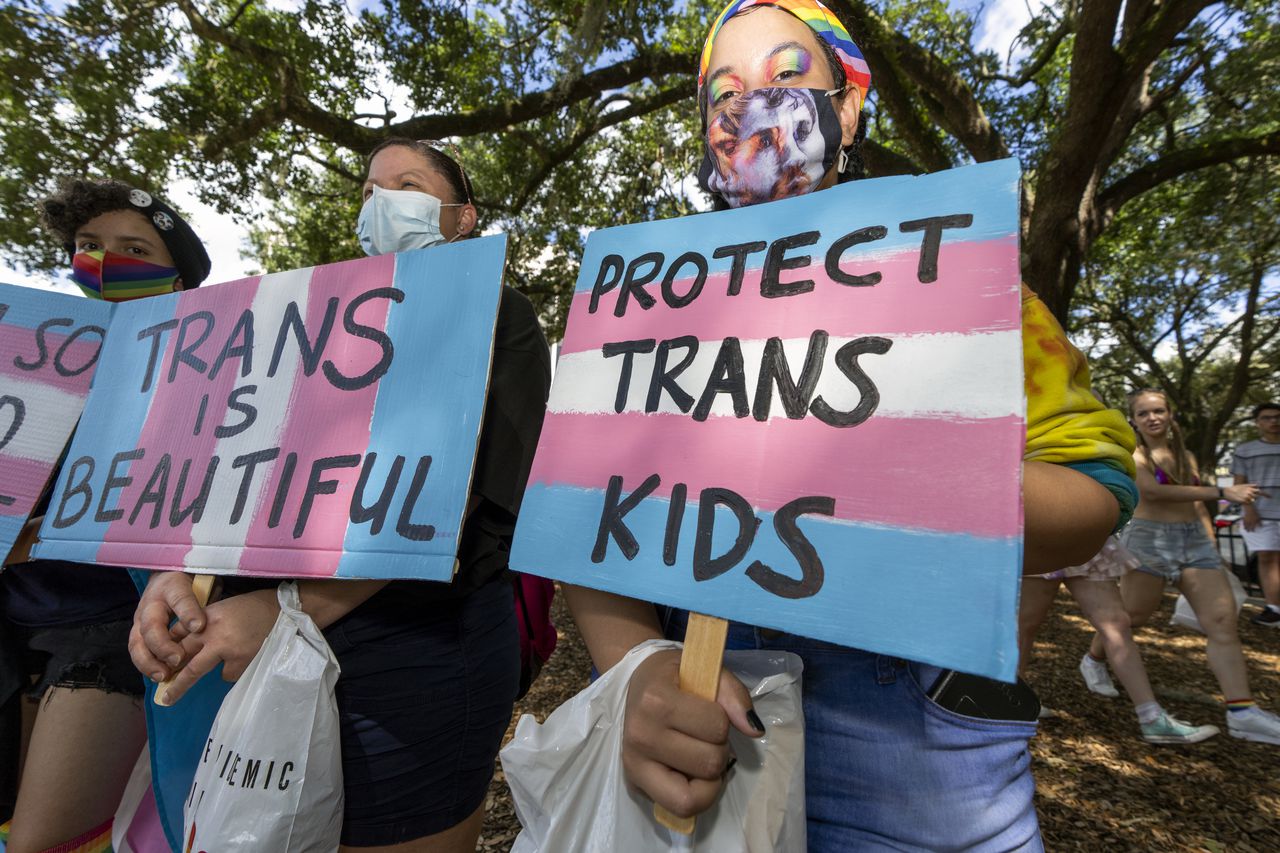Florida to impose ban on trans students and faculty from using preferred bathrooms, pronouns
Trans teachers and students in a Florida school district won’t be able to use their preferred bathrooms and pronouns during the upcoming school year, according to an advisory notice distributed by Orange County Public Schools.
The new regulations follow legislation passed during the state’s 2023 Legislative session, including H.B. 1069 and H.B. 1521, which defines a person’s gender using “hormones and genitals present at birth” and states that employees and students “may not be required… to refer to another person using that person’s preferred personal title or pronoun.”
H.B. 1069 applies to public school students in kindergarten through grade 12. Meanwhile, H.B. 1521, applies to people using restrooms at public schools, colleges, universities, correctional facilities and government buildings. Most Florida public schools will resume teaching this week.
Orange County School District is the fourth-largest in the state and eighth-largest in the nation. It includes 210 schools, attended by 208,000 students and employs 24,294 staff members.
The laws apply to all school districts across the state, but districts are able to use some discretion on how they respond due to a lack of guidance from the Florida Department of Education.
If schools chose not to follow the new regulations, a civil action might be brought against them by the Florida Attorney General. Institutions may also be fined up to $10,000.
The notice was sent from Orange County Public Schools’ Deputy General Counsel John C. Palmerini to Superintendent Dr. Maria Vazquez and Dr. Michael Armbruster, deputy superintendent, Monday.
According to the directive, educators will no longer be able to ask a child what their preferred pronouns are. The notice states that such actions are now against the law. The Legislature has not addressed whether parents could ask teachers to use specific pronouns when addressing their children.
However, in accordance with the law, a parent would need to inquire with an educator about using a child’s preferred pronouns if they differ from their gender assigned at birth.
Due to the lack of guidance given by the state, teachers are being advised to refer to students using only their first name in the class roster or a nickname authorized by parents or guardians. Teachers can also choose to refer to students only by their last names.
If a teacher does not follow the new guidelines, they could be subject to sanctions, including having their teaching certificate revoked.
When it comes to bathroom usage, schools now need to provide trans students and teachers with single stall restrooms. According to the notice, trans students and teachers are no longer allowed to use group bathrooms that do not correspond with their gender assigned at birth.
Trans students who practice sports must be allocated a single stall restrooms or coaches offices when changing for physical education classes or activities. There are exceptions to this rule, specifically relating to medical emergencies, to assist someone under 12, elderly or with a disability and in cases of bathroom maintenance.
On occasion, trans students might be allowed to use a group changing area if no one of the opposite sex is using the facilities.
In addition, school visitors who use a bathroom that does not correspond with their gender assigned at birth could be charged with criminal trespassing, which is normally considered to be a first-degree misdemeanor punishable by up to 60 days in jail, up to 6 months probation or a $500 fine.
In some exceptions, the crime can be escalated to a third-degree felony.
School districts are now required to implement penalties for students that refuse to comply with the law, although Orange County Public Schools did not specify what those penalties could be.
Andrew Spar, president of the Florida Education Association, believes that the new rules will result in more teachers leaving their posts, even as the state grapples with one of the worst shortages in its history.
According to data compiled by the association, in August 2022, there were 10,771 advertised vacancies in school districts across the state. About 6,000 of those were for teachers and an additional 4,765 were for support staff.
“What I’m seeing more than anything is people just walking away,” he said.
Spar has expressed concern about the lack of single-use restrooms in schools, which are typically reserved for teachers, and how teachers and students could be outed as a result of the new regulations.
“There’s a lot of questions and certainly a lot of confusion around what to do,” he said, explaining that school officials are worried they could be removed from office if they don’t react in accordance with the legislation.
“I think if the Department of Education were actually very clear in what the expectations were, I don’t think we would see the different approaches we’re seeing right now.”
